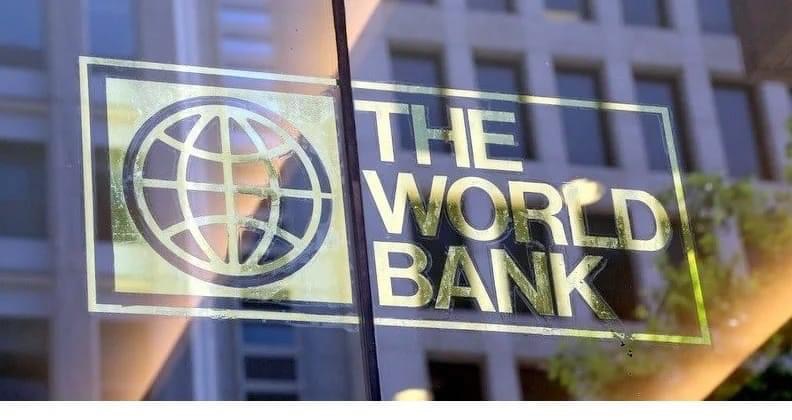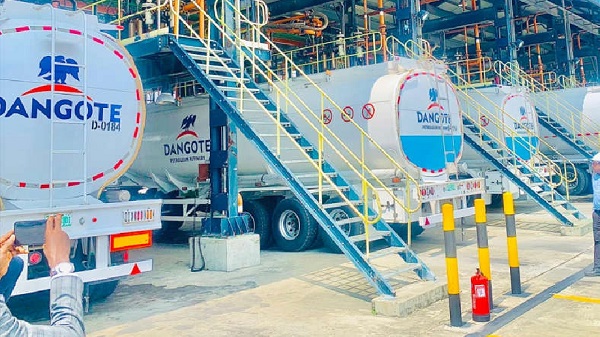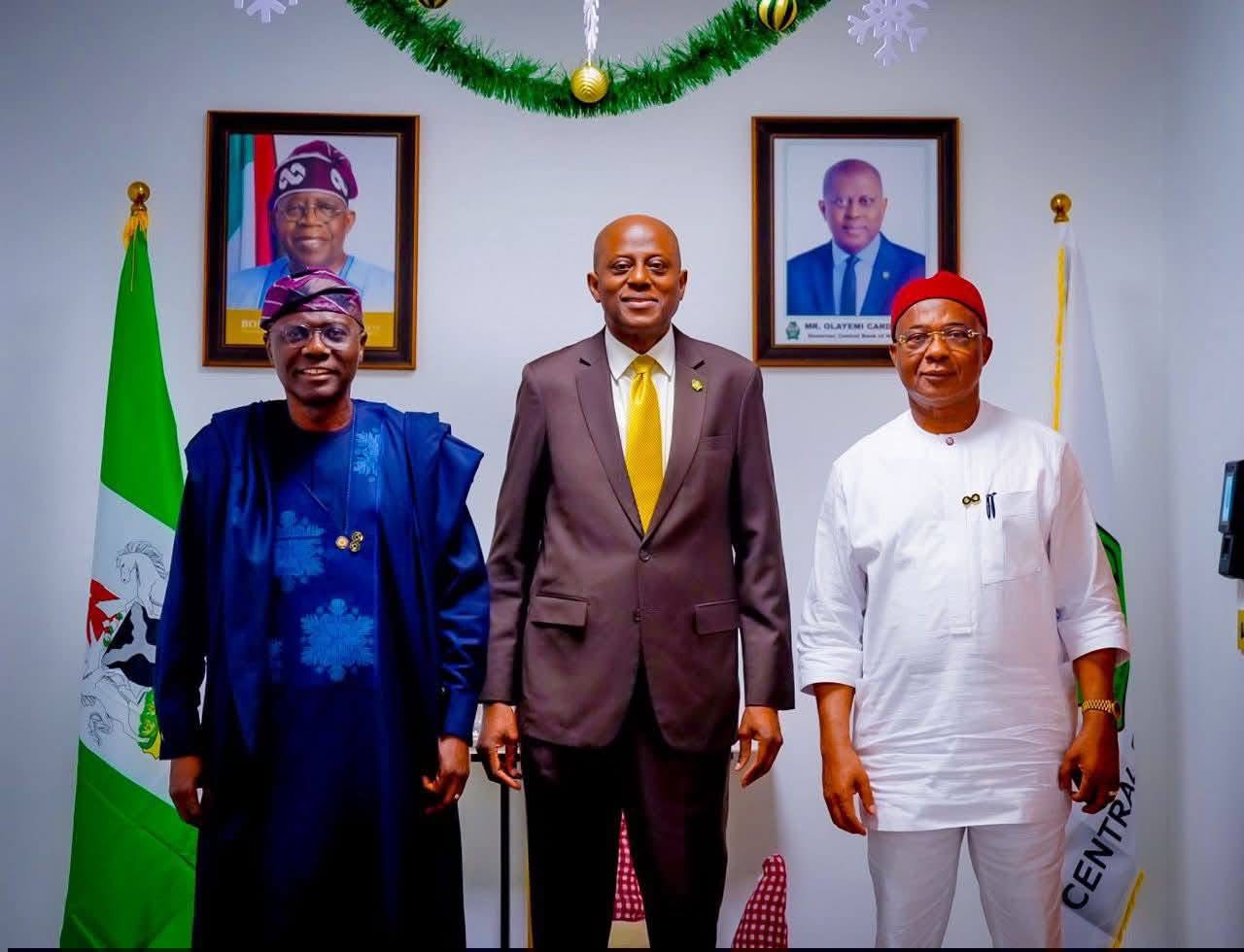Business
World Bank Approves $2.25bn Loan For Nigeria

Minister of finance and Coordinating Minister of the Economy, Wale Edun has announced the approval of two major “financial support packages” by the World Bank — valued at $2.25 billion.
Ekwutosblog reports that the development is part of President Tinubu’s ongoing efforts to stabilise the economy, reposition it for sustained and inclusive growth, and provide urgent support to the poor and vulnerable, according to a statement made available on Thursday by Mohammed Manga, the Ministry’s Director of Information and Public Relations.
“The approved operations include $1.5 billion for the Nigeria Reforms for Economic Stabilization to Enable Transformation (RESET) Development Policy Financing Program (DPF) and $750 million for the Nigeria Accelerating Resource Mobilization Reforms (ARMOR) Program-for-Results (PforR),” the statement reads.
“The combined total of $2.25 billion will provide essential financial and technical support as the government continues to address economic distortions.”
Also, Manga said the support package will assist Nigeria in its long-term goal of increasing non-oil revenues and securing oil revenues to ensure fiscal sustainability and the delivery of quality public services.
He said ‘RESET’ aims to strengthen Nigeria’s economic policy framework, create fiscal space, and protect the poor and vulnerable.
The statement also noted that ‘Armor PforR’ supports tax and excise reforms, improves tax revenue and customs administration, and safeguards oil revenues.
Commenting on the approval, Edun welcomed the support of the World Bank.
“We have undertaken bold and necessary reforms to restore macroeconomic stability and put Nigeria on a path to sustainable and inclusive economic growth,” he said.
“These reforms will create quality jobs and economic opportunities for all Nigerians.
“We welcome the support of the RESET and ARMOR programs as we further consolidate and implement our policy reforms, consistent with accelerating investment and using public resources more sustainably to achieve our development goals.”
On his part, Ousmane Diagana, the World Bank vice-president for Western and Central Africa, lauded the country’s efforts in reforming the financial sector.
“Nigeria’s comprehensive macro-fiscal reforms are placing the country on a new path that can stabilize the economy and lift people out of poverty,” Diagana said.
“It is essential to maintain the momentum of these reforms and continue to provide support to the poor and vulnerable to mitigate the impact of the cost-of-living crisis.”
The vice-president said the financing package will strengthen the World Bank’s strong partnership with Nigeria and support efforts to rejuvenate the economy and expedite poverty reduction, serving as an example for Africa.
Business
BREAKING: Dangote Refinery Announces Massive Reduction in Petrol Price

The Dangote Refinery has significantly slashed its ex-depot petrol price in a strategic move to gain a competitive edge over the Nigerian National Petroleum Company Limited (NNPC) and other petroleum marketers across the country.
According to DAILY POST checks on Petroleumpriceng on Friday morning, the refinery’s ex-depot price has dropped to N699 per litre, down from N828 per litre. This reflects a reduction of N129, representing 15.58%.
This latest review marks the 20th price adjustment by the refinery this year and comes just weeks before the busy Yuletide season.
The reduction also follows recent price cuts by the NNPC and independent filling stations, which have lowered pump prices at least twice in the last three weeks, bringing the retail cost of petrol to between N915 and N937 per litre in Abuja.
Business
Fraudster Arrested For ID Theft Offers Victim N10Million To ‘Sell Her BVN’ In Osun

Authorities in Osun State have uncovered a major identity-theft ring after fraudsters, accused of stealing the BVN and NIN of local businesswoman Mrs. Fadahunsi Janet Gbemisola, allegedly tried to bribe her to “overlook” the compromise of her BVN.
The case has raised serious concerns over banking security, police integrity, and a nationwide data breach involving more than 150 Nigerians.
Mrs. Fadahunsi, who spoke to SaharaReporters on Monday, said the ordeal began on November 28, 2024, when she lost her phone in transit. The device contained her OPay and Palmpay SIM cards.
“I tried calling the phone, but it wasn’t picked,” she recalled. “By the following morning, it had been switched off, so I reported the matter to the police.”
Days later, she was locked out of her OPay account. According to her, Opay officials informed her that the breach originated from MoniePoint Microfinance Bank, even though she had never opened an account with the institution.
When she visited MoniePoint, staff presented her with an account profile, 8028946149, bearing her full name, BVN, NIN, and photograph. The only mismatched details were the address and phone number used to open the account.
“The officer told me I cannot deny the account because my picture and name were there,” she said. “I was shocked because I had never opened any MoniePoint account in my life.”
She later obtained a court order from the Chief Magistrate Court, Ejigbo (MEJ/M4/25) directing MoniePoint, GTBank, Opay, and Palmpay to lift restrictions placed on her BVN. Despite serving all institutions, she said MoniePoint denied ownership of the same account.
Frustrated, she went to the Central Bank of Nigeria (CBN) in Osogbo, where officials reviewed MoniePoint’s submission and confirmed that her BVN and NIN had indeed been used to open the fraudulent account.
“They showed me the form. My picture was there, my BVN was there, my NIN was there,” she said. “But the address and signature were not mine.”
According to her, CBN officials told her plainly that “until you find the person who used your identity, you cannot defend yourself.”
Confronted with the daunting task of tracking down the fraudster and with funds received from family members to bury a loved one frozen in her accounts, she sought help from the police.
Following a petition at the State Criminal Investigation Department in Osogbo, investigators traced the suspect, identified as Calistus Obi, to the Lagos–Ogun border and arrested him on March 28, 2025.
During investigation, the Police Monitoring Unit at Osogbo were able to recover from the suspect “67 SIM cards, multiple phones and evidence of over 150 identities, including BVN and NIN records, allegedly used to open MoniePoint accounts for their international syndicated fraudsters were discovered.”
During interrogation before the Osun State Commissioner of Police, Mrs. Fadahunsi said the suspect admitted he was working with a man called “Mike” based in China.
“He told the CP that he sends the MoniePoint accounts to the man in China and gets a percentage,” she narrated. “The CP asked him, ‘So you have sold Nigerian people to China because of money?’”
After his arrest, the suspect’s associates allegedly approached both the police and the victim with cash offers to bury the case.
“They called me and said I should say how much I want to forget my BVN,” Mrs. Fadahunsi said. “They offered up to ₦10 million. I refused.”
She also said an influential figure from Lagos contacted the police monitoring unit handling the case and asked them to collect ₦500,000 to release the suspect, but the officers declined.
Lamenting fraudsters in the Nigeria Police Force, she explained that shortly after rejecting the bribe, senior officers from Abuja ordered the Osun State Command to transferred the case to Force Headquarters with immediate effects.
“Unfortunately, the case file was transferred to Force Headquarters Cybercrime unit. When I got to Abuja, they told me the suspect had been released on bail,” she said.
“They suddenly claimed he was not the person who opened the MoniePoint account.”
Her new IPO reportedly told Mrs. Fadahunsi that “until we find the real person, you cannot use your BVN.”
She said investigators in Abuja dismissed the earlier evidence that linked the suspect directly to the phone number used to open the fraudulent MoniePoint account.
According to Mrs. Fadahunsi, attempts by her lawyer to follow up with police in Abuja were met with hostility.
“The IPO told my lawyer, ‘You said you want to write petition against me; go and write it,’ and he dropped the call,” she said.
She added that the released suspect later visited Osun CID, attempting to reclaim his confiscated SIM cards and phones, though Osun officers refused as at the last time she visited.
Months after court orders, petitions, and repeated visits to police and regulators, Mrs. Fadahunsi’s BVN remains blocked. Her GTBank, Opay, and Palmpay accounts are inaccessible.
“I cannot do business. I cannot even open another account,” she said. “My whole life is on hold.”
Growing Concern Over National Data Breach
The case has raised alarms about a massive BVN and NIN breach used to create fraudulent MoniePoint accounts allegedly used to receive funds from across the world.
With at least 150 Nigerians’ identities compromised, the incident signals a potential national security threat.
“This is not just my problem,” she said. “It means anyone in Nigeria can lose their identity and the system will blame them.”
When SaharaReporters contacted the Osun State Command’s spokesperson, DSP Abiodun Ojelabi Zechariah, he said he was not aware of the case but requested for the copy of the petition of the woman.
Business
GOVS; UZODIMMA, SANWO-OLU MEET CBN GOVERNOR TO DEEPEN ECONOMIC COLLABORATION.

By Prince Uwalaka Chimaroke
9- DEC- 2025
Governor Hope Uzodimma has announced that he paid an official visit to the Governor of the Central Bank of Nigeria (CBN), Mr. Olayemi Cardoso, as part of efforts to strengthen joint economic strategies aimed at improving the wellbeing of Nigerians. He was accompanied by Lagos State Governor, His Excellency Babajide Sanwo-Olu, whom he described as a brother and valued partner in national development.
During the visit, the leaders engaged in extensive discussions focused on enhancing cooperation between state governments and the apex bank. Their deliberations covered existing economic programmes currently underway across the country, with particular attention to reforms designed to support fiscal stability, promote investment, and protect the livelihoods of citizens.
Governor Uzodimma noted that the meeting also created room to explore fresh avenues for synergy on policies that can stimulate sustainable growth. The goal, he said, is to ensure that shared commitments among key government institutions are consistent with long-term national economic objectives.
He reaffirmed that such collaborations remain essential in addressing present economic challenges and securing a more prosperous future for Nigerians, emphasizing that the dialogue with the CBN Governor underscores a united resolve to deliver impactful results.
The discussion ended with all parties expressing optimism that strengthened partnerships will translate into improved outcomes for the nation’s economy.
-
Business1 year ago
US court acquits Air Peace boss, slams Mayfield $4000 fine
-

 Trending1 year ago
Trending1 year agoNYA demands release of ‘abducted’ Imo chairman, preaches good governance
-

 Politics1 year ago
Politics1 year agoMexico’s new president causes concern just weeks before the US elections
-

 Politics1 year ago
Politics1 year agoPutin invites 20 world leaders
-

 Politics1 year ago
Politics1 year agoRussia bans imports of agro-products from Kazakhstan after refusal to join BRICS
-
Entertainment1 year ago
Bobrisky falls ill in police custody, rushed to hospital
-
Entertainment1 year ago
Bobrisky transferred from Immigration to FCID, spends night behind bars
-
Education1 year ago
GOVERNOR FUBARA APPOINTS COUNCIL MEMBERS FOR KEN SARO-WIWA POLYTECHNIC BORI
















